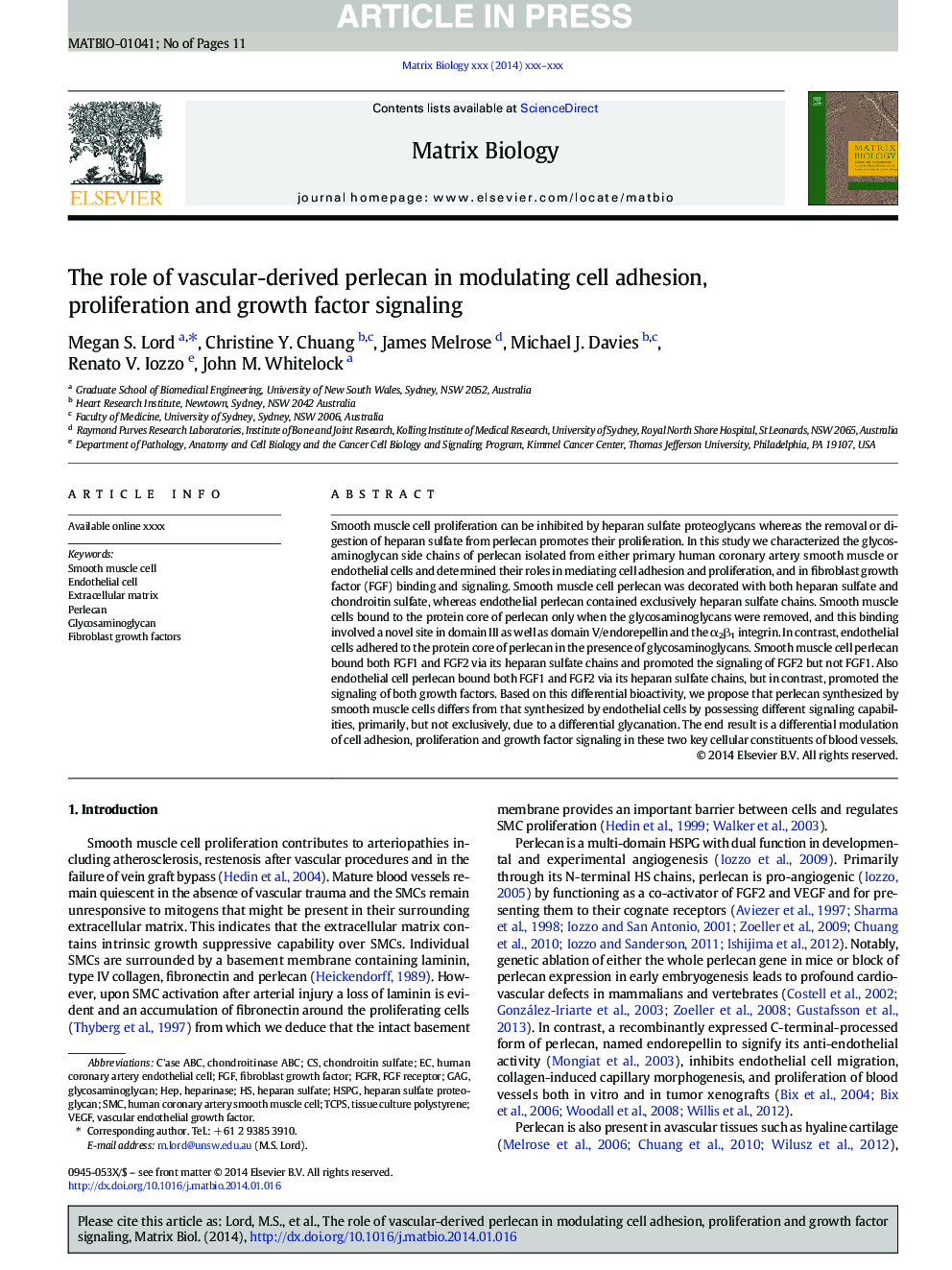| Article ID | Journal | Published Year | Pages | File Type |
|---|---|---|---|---|
| 8455349 | Matrix Biology | 2014 | 11 Pages |
Abstract
Smooth muscle cell proliferation can be inhibited by heparan sulfate proteoglycans whereas the removal or digestion of heparan sulfate from perlecan promotes their proliferation. In this study we characterized the glycosaminoglycan side chains of perlecan isolated from either primary human coronary artery smooth muscle or endothelial cells and determined their roles in mediating cell adhesion and proliferation, and in fibroblast growth factor (FGF) binding and signaling. Smooth muscle cell perlecan was decorated with both heparan sulfate and chondroitin sulfate, whereas endothelial perlecan contained exclusively heparan sulfate chains. Smooth muscle cells bound to the protein core of perlecan only when the glycosaminoglycans were removed, and this binding involved a novel site in domain III as well as domain V/endorepellin and the α2β1 integrin. In contrast, endothelial cells adhered to the protein core of perlecan in the presence of glycosaminoglycans. Smooth muscle cell perlecan bound both FGF1 and FGF2 via its heparan sulfate chains and promoted the signaling of FGF2 but not FGF1. Also endothelial cell perlecan bound both FGF1 and FGF2 via its heparan sulfate chains, but in contrast, promoted the signaling of both growth factors. Based on this differential bioactivity, we propose that perlecan synthesized by smooth muscle cells differs from that synthesized by endothelial cells by possessing different signaling capabilities, primarily, but not exclusively, due to a differential glycanation. The end result is a differential modulation of cell adhesion, proliferation and growth factor signaling in these two key cellular constituents of blood vessels.
Related Topics
Life Sciences
Biochemistry, Genetics and Molecular Biology
Cancer Research
Authors
Megan S. Lord, Christine Y. Chuang, James Melrose, Michael J. Davies, Renato V. Iozzo, John M. Whitelock,
